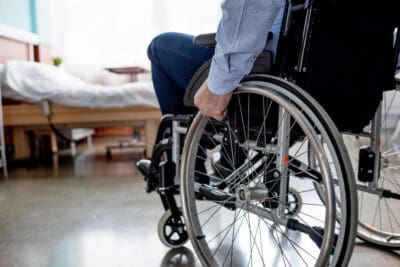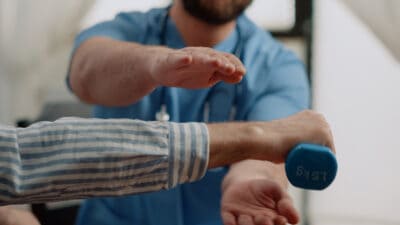Less Stress And More Safety For Seniors At Home -Finding Calm in a Stressful Time
Do you have a planned surgery scheduled? Are you or a loved one experiencing an unexpected hospital stay? Are you or someone you care for headed for a stay in a rehab or skilled nursing facility? Maybe you are a caregiver and work with many different clients. Whatever the case may be- a discharge home from the hospital or a rehab stay can be a very stressful time. While every experience will be unique, there are some simple ways to help make this experience a bit less stressful.
If you or a loved one has spent time in a hospital, rehab, or skilled nursing facility and are now returning home, you may be feeling overwhelmed, exhausted, and unsure of what comes next. You may have had a good experience. You may have had a not so great experience- for many different reasons. And there is always the case where it was somewhere in the middle. Regardless of which category you fall into- it can sometimes be a time of mixed emotions.
This post contains affiliate links. I earn from qualifying purchases. This means that I may earn a commission should you choose to sign up for a program or make a purchase using my link. This is at no extra cost to you. I only recommend products that I truly believe are helpful. See our Privacy Policy and Disclosures page
It can also seem overwhelming. Maybe you are coming home with lots of new equipment, more medications, activity restrictions, and just a general change in your daily life and you feel overwhelmed or stressed. These tips may help. If you aren’t feeling ambivalent about this change- that’s great too. Either way, here are 5 tips that may help you transition home from the hospital or rehab facility with a bit less stress- or at the very least, give you some things to think about. Keep reading for some tips for safety for seniors at home.
5 Tips to Help You Discharge Home With Less Stress
1. Be clear about the discharge instructions before you leave the facility
Make sure you ask all your questions to the nurses, doctors, social workers/discharge planners, and rehab staff- no matter how insignificant you think they may be. I can tell you from experience that rehab staff love to provide patient education. Ask social workers and case managers about numbers for referrals, community resources, and support groups as needed.
Let’s be honest, sometimes it feels like we are being bombarded with information and it’s going in one ear and out the other. One of the most important pieces of equipment you will need is – a notebook ! (and a pen- for some reason it’s always so hard to find one) Write things down. I know that I forget things quickly when I am tired or overwhelmed. Write it down or have someone else do it for you. It is important to have all the information you need so that you can make the best decisions for yourself or for someone you care for. You are your own best advocate. Being clear on the discharge instructions helps you to decrease the chances of re-hospitalization.
Most of the time, the equipment that you need will be delivered the day you leave. If home modifications have been recommended, try to have them completed before you get home. If you are not able to- Don’t stress about it. Try to focus on the big picture items first- Can you get inside the home safely? Can you access the bathroom? (the shower can wait if necessary). Are you able to safely get in and out of bed? Do you have a short term plan for meals. That may seem like a lot of information, but the bottom line is ask questions and be informed.
Tip – Some of your needed equipment will be covered by insurance- but not all. Believe it or not you can find walkers, wheelchairs, tub seats, and various other items at Goodwill and thrift stores. There are also many organizations, such as the Lion’s Club, that loan out medical equipment. You may need to search in your particular area.

2. Give yourself time to transition to a new routine
It can take time to get used to a new medication schedule, fitting in home health services, and getting used to any activity restrictions that you have. Even unpacking can be overwhelming. You may be feeling several new emotions. Just remember that it is okay to take it slow. You may be on the road to a fast recovery- or you may find that you are dealing with a new normal- go easy on yourself and remember it does not have to be solved in one day. This is as true for individuals as it is for caregivers. Take some time to see what works and what doesn’t and don’t be afraid to change it up.
3. Follow your home exercise programs from therapy and keep active
I can tell you that it makes a huge difference in your recovery if you do the exercises that you are given. However, always communicate to the therapy providers if you feel that it is too much. Quality is always better than quantity- let them know so that they can modify the plan to what is the most beneficial.
Above all else, stay as active as you can. Ensure that you sit up in a chair for all meals and stay seated for at least 30 minutes after you eat. The less you move the harder it is to move. The harder it is to move, the less we move.

4. Ask for help from others
It can be very hard to ask for help, but here is something you may or may not realize- People truly do want to help others. Do you need help with transportation, getting your equipment inside, getting some groceries, rearranging furniture in the house to accommodate a wheelchair, walker, or hospital bed? If you do not have family nearby, do not be afraid to ask neighbors- the worst thing they can do is say no. If you belong to a group, organization, or church- don’t pass up assistance from people ready and waiting to help. You can return the favor at some point- be it physical or emotional support.
5. Find and plan for ways to deal with stress
Whether it be you or someone you care for, stress does not help with the healing process. You may have setbacks and learning ways to better deal with stress can be a useful tool for safety for seniors at home. I hope that things go smoothly and as planned for you, but sometimes they just don’t. Maybe you already have a go to way to deal with stress- music, talking to a friend or family member, and being outside are a few accessible options. Exercising and keeping active are also crucial for dealing with stress.
Here are a few more simple ideas:
- Coloring or Art
- Writing down or thinking about the things you are grateful for each day
- Jot down your worries on a piece of paper to get it out of your head- Is there a short term solution ?
- Try not to get overwhelmed with the things that you cannot change
- Check in with how you are feeling everyday: Daily Check In
So there are my five tips for less stress and more safety for seniors at home after a hospital or rehabilitation stay that may give you something to think about if you in the present or in the future. The less stress we have, the better our bodies can heal. Then we can get back to doing the things we love. Keep reading if you want a few more tips and resources to help you along the way.
Want More Tips for Safety For Seniors At Home?
I hope that you found at least one or two of the tips above helpful. Take a look at the website for The Caregiver Family Alliance for some great resources that may be useful to you or a loved one. They have a list of questions to ask at discharge and many resources that you can explore-as well as links to other helpful organizations.
You may be interested in the caregiver worksheets and checklist from the National Institute of Health:
Home Safety Checklist For Alzheimer’s Disease
Preventing Falls: Room By Room
My number one recommended piece of simple equipment is the reacher. It is tried and true. It helps with item retrieval and getting dressed- just to name a few. If you are looking for a reacher to lift heavy duty objects ( like a can of soup), this is not it. I generally recommend moving objects that are heavier and frequently used to a more accessible location. A lot of people buy 2 – one for upstairs and one for downstairs (or another room in the home). Of course, you may need a third to retrieve the reacher that fell on the floor! They are sold individually as well. If you are tall, be aware that they come in two size lengths. You may want to consider the longer size.
The best exercise for anyone and for anything (and there is never any contraindication to it!) is to breathe. Breathing – it is a simple idea but it is the best thing you can do. Deep diaphragmatic breaths help to prevent a multitude of issues:
Breathing Exercise:
- Sit upright with a long spine.
- Chest is broad and the feet are supported.
- Place one hand on your chest and one hand on the belly.
- Inhale through your nose and feel the belly expand and the hand rise.
- Exhale as you feel the hand on the belly fall.
- The goal is to have the hand on the chest not rise and fall- this ensures you are taking nice full diaphragmatic breaths.
Above All:
- Take your time
- Do not rush
- Stay in touch with your doctor
- Find some ways in your day to have some fun
- Keep your mind active
- Keep moving
- Stay connected to family and friends
Want More?
If you are interested in adding chair yoga to your day, take a look at Is Chair Yoga Right for You?
Here are my 15 Fall Prevention Tips: Home Safety Tips For Seniors
You may enjoy Healthy Aging Resources or 5 Simple Tools For Seniors
You may be interested in reading, Chair Yoga for Healing.
Or, you can learn some more about the breath in Breathing For Better Mobility
You may be interested in taking a look at these inspirational bracelets that help with managing anxiety: Presently Bracelets
If you are interested in journaling, you may be interested in my simple Daily Journal Notebook
Finally, you may be interested in Yoga For A Positive Mindset
I invite you to sign up for the Monthly Email Newsletter to help you stay up to date on the latest blog posts and videos
Namaste!
Disclaimer: The Peaceful Chair and thepeacefulchair.com strongly recommends that you consult with your physician before starting this or any exercise program.The information provided on this website is for informational purposes only and is not to be used in place of medical advice or information from your healthcare provider. Neither The Peaceful Chair, the peacefulchair.com, nor any of its contributors shall be held liable for any improper or incorrect use of the information described and/or contained herein and assumes no responsibility for anyone’s use of the information contained in any links, videos, or any content on this website.

Leave A Comment